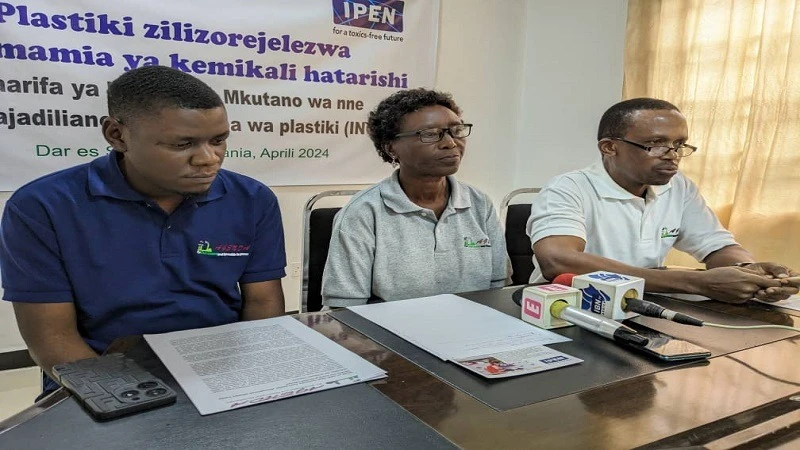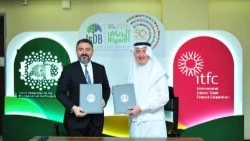Green activists call for measures to eradicate plastic chemicals

AS delegates from various countries are set to meet at the Global Plastics Treaty Negotiations in Ottawa, Canada next week, environmental activists have urged Tanzanian representatives to consider the impact of chemicals in recycled plastics.
Addressing reporters in Dar es Salaam yesterday, officials from the Agenda for Environment and Responsible Development (AGENDA), called for a strong treaty that will reduce production of plastic, eliminate the most toxic forms of plastic and toxic chemical additives.
Dora Swai, executive secretary of AGENDA, said the hazardous chemicals present risks to recycling workers and consumers as well as to the wider society and the environment, saying it is important for Tanzanian officials to carry the agenda to the meeting.
According to her, recycling is not the best way to reduce the amount of plastic in the environment but could cause further harm by putting more resources into plastics production.
She said that in a recently published study in Data in Brief via ScienceDirect, plastic pellets from plastic recycling plants in 13 different countries in Africa, South America, Asia and Eastern Europe were found to contain hundreds of chemicals, including numerous highly toxic pesticides.
Because of this, scientists have confirmed that recycled plastics are unfit for most purposes and hinder the attempts to create a circular economy.
The published data from the countries, including Tanzania, identified nearly 500 chemicals in recycled plastic pellets, including pesticides, industrial chemicals and other toxic substances.
“At the treaty talks, some countries favour approaches that would rely on plastic recycling as a significant tool for resolving the plastic crisis. But the new data adds to the increasing evidence that plastic recycling is a vector for the spread of toxic chemicals and therefore should not be considered a useful tool in the struggle to end the health and environmental threats from plastics,” she said.
“Plastics are made with toxic chemicals, so when plastic is recycled, the chemicals end up in the recycled material,” said Silvani Mng’anya, principal programme officer at AGENDA, expressed concern that chemicals found in recycled plastics may already be making people more susceptible to cancer, heart disease, reproductive disorders, diabetes, obesity and other serious health conditions.
“An effective plastics treaty needs to address the health and environmental threat from plastic chemicals and include approaches to control plastic production. We cannot recycle our way out of the toxic plastic problem,” he said.
Top Headlines
© 2024 IPPMEDIA.COM. ALL RIGHTS RESERVED



















